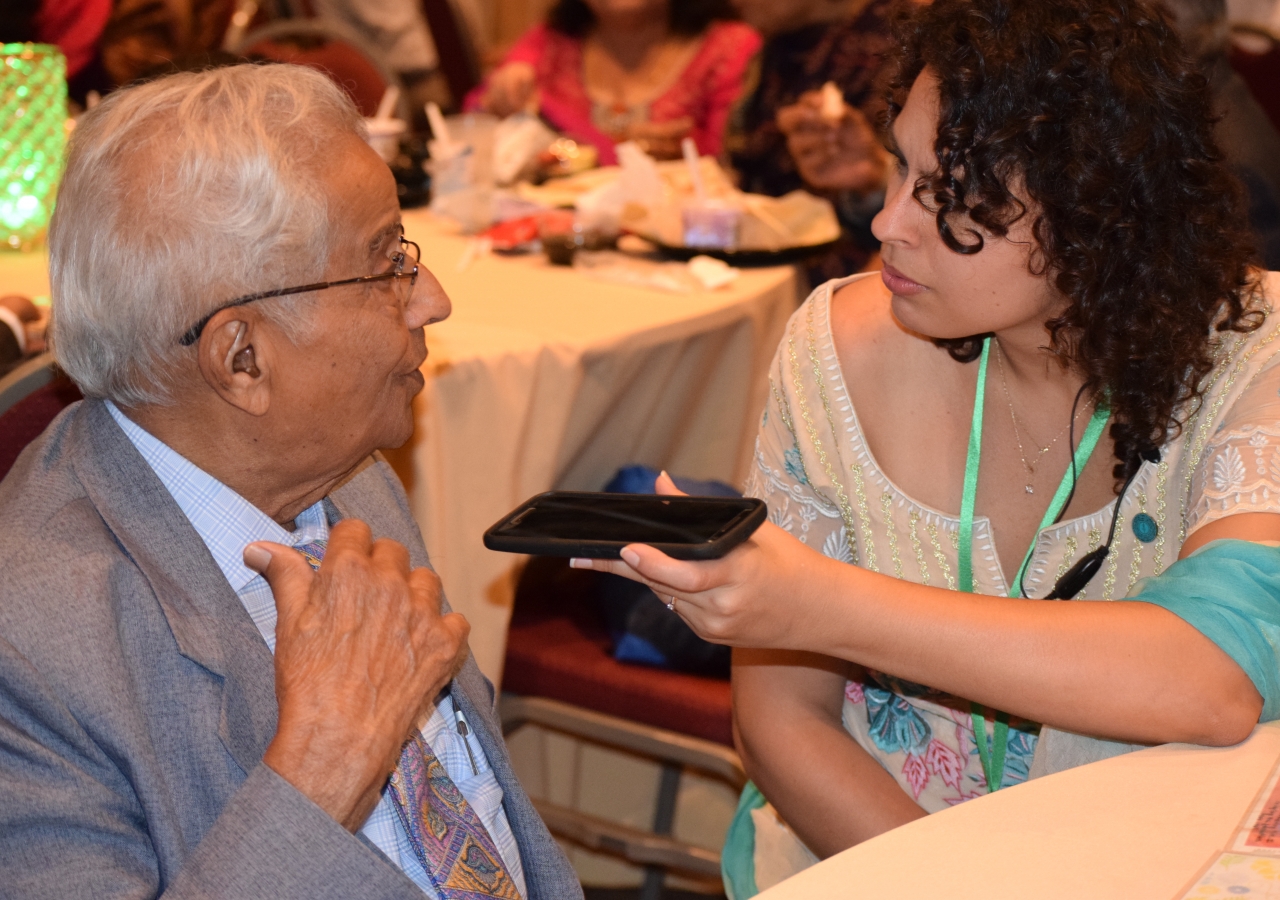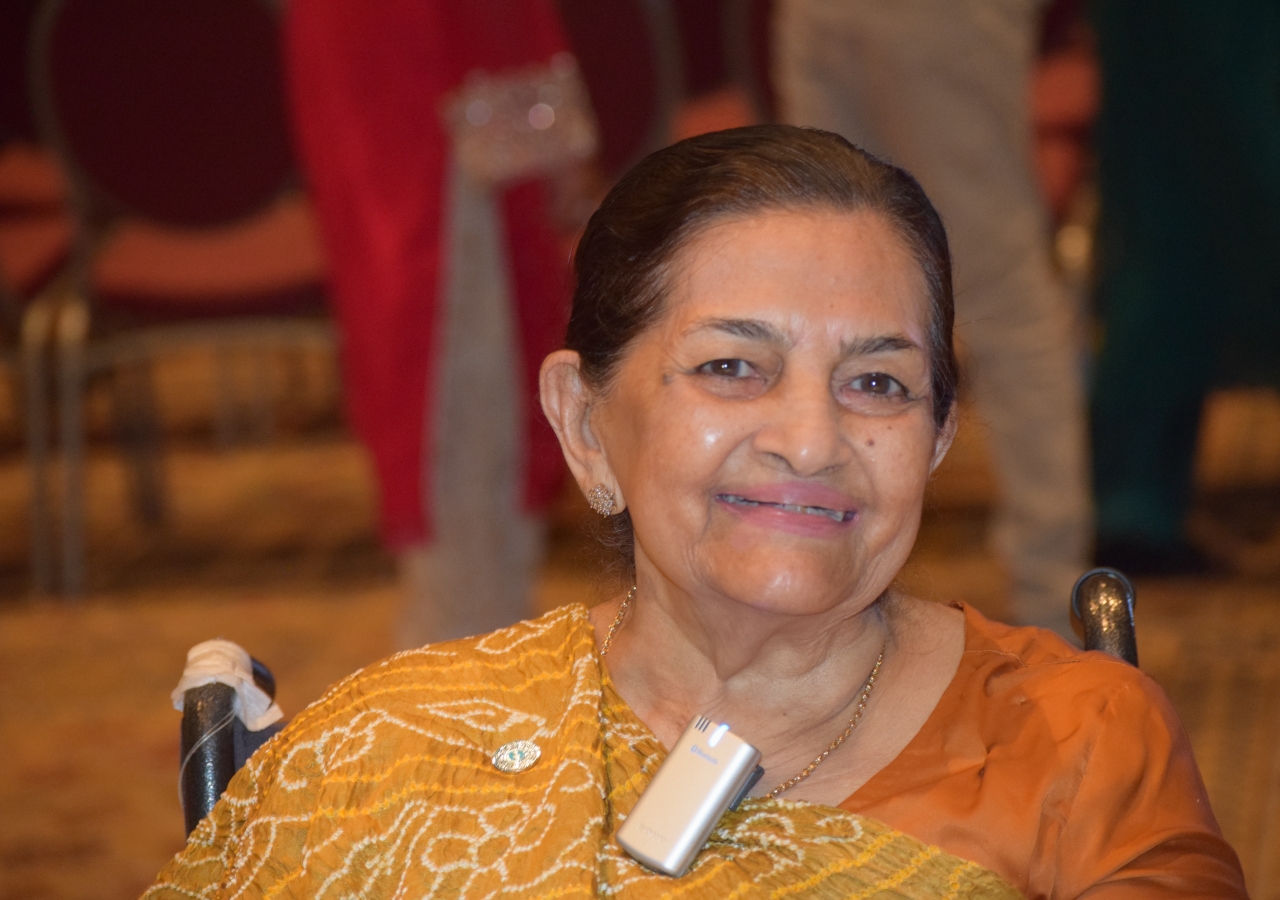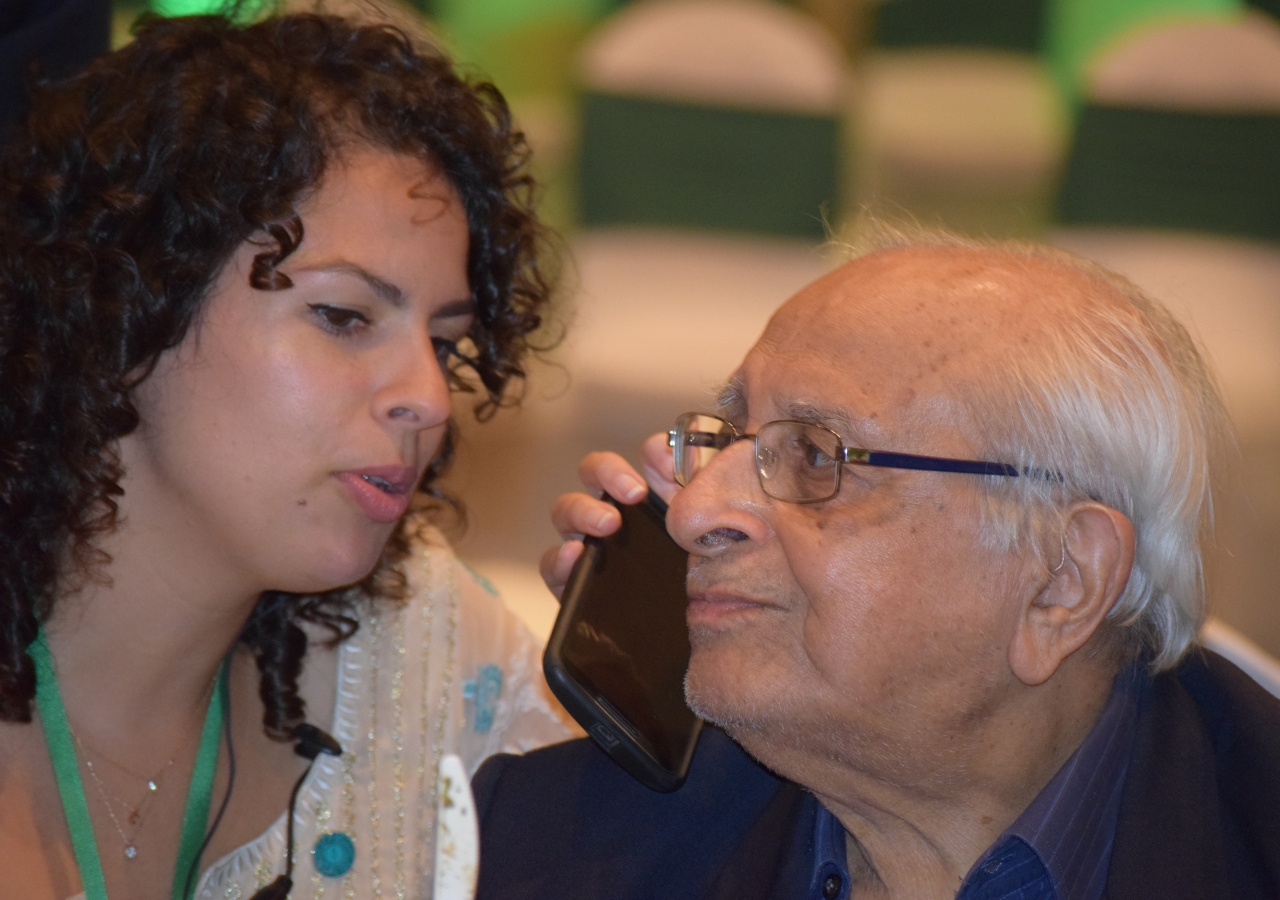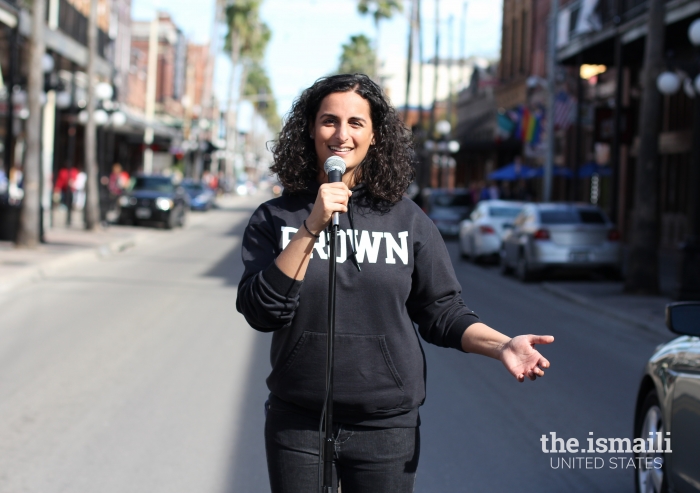One of the things I love about major days at Jamatkhana, is that all the elders gather in the parking lot to drink chai and share news. Walking around, I hear snippets of Urdu, Gujarati, Hindi, Kachhi. It’s a buzz of colors, voices, and so many generations. In that moment, I forget that I am in the US. I feel like I am in a village, a place reminiscent of the compound where my dad grew up in Pune and played as a little boy with his neighbors.
The Diamond Jubilee reflected all the things I love about these days, but on a much larger scale. When I arrived to the Convention Center, I was confronted by volunteers eagerly assisting the arriving families, children running around in perfect outfits and polished shoes, and family friends I hadn’t seen for years. I was greeted by hugs, kisses, shouts of surprise.
When asked to write an article to share the experience of what I encountered at Diamond Jubilee, I was excited most by interviewing the eldest generation of Ismailis. Our grandfathers, and grandmothers, who through so much struggle and strife, managed to make their way to the US, and give their families the opportunities they never had.
I wanted to sit with them, stare into their eyes and listen; absorb their stories the way dry land drinks up rain after a hot summer. How necessary their words, their stories, their advice at a time where we, the younger generation are confronting our own identities as Muslim Americans being pulled between the traditional and the modern, the old and the new, the simple and the complex.
My first interview subject was Sadruddin Mamdani, a man with soft hands and a big smile. At 82 years young, he shared his story with me. When he came to the US in 1992, he was doing very well in India and was involved in a lot of Jamati work, which he continued for 25 years. In fact, he showed me a picture of himself with Hazar Imam.
In the later part of his life, he wanted to do something for his children, so when he was on a visit to the US, he decided he was going to come back with his whole family. He has been in the US for 22 years and these were some of his thoughts.
Alia: What advice would you give to the younger generation?
Sadruddin: “The younger generation has the opportunity to step out of the Jamat and get to know other communities, learn from them, and let them learn from us. That will help build our community better. We should go to their programs, visit their prayer halls, see what they say and we will learn better and also be proud of who we are, too.”
Alia: Is there a mistake that you see our generation making?
Sadruddin: They should be more serious about life. They are more involved in the present: in entertainment, in enjoying life, but they should go beyond that. They should work seriously and learn more things about life, not just earn money. America is a good place to work for money and spend money, but there is life beyond money.
My next stop was with Khulsum Hussain Al Virji, who lived in Burma, Bangladesh, and Pakistan, before she re-located to Tampa in 1983. She called herself a gypsy and smiled with pleasure when she shared with me that she had been here in the US for 34 years. Her main thoughts about our generation were encouraging and full of praise. She marveled at how our generation manages to raise children, run a household, work a full-time job, care for the elderly, and dedicate time to Jamati seva. Her advice was that we should do our best to come to Jamatkhana, and if we couldn’t (because of all our responsibilities), to say our prayers as we have been instructed.
I ended my interview session with my very own grandfather. Born in Pune to a life of poverty, my grandfather’s stubbornness was his greatest asset. As a young boy, his father lost his ability to walk, so my grandfather would rent a rickshaw, work all day, and use his earnings to pay for his father’s medicine. His life was full of all sorts of hardship until he, after scraping by and saving for years, began to invest his savings into real estate properties. That led him to send my father to Michigan State for a college education.
His words were simple, but it was especially hard to interview him. I could never get a word in edgewise when asking him questions, as he would just start showering me with blessings. At last, I pieced together his thoughts and they came down to this:
"Money has no value - money won’t come with you when you're dead."
"Say good prayers, do good work, and good deeds."
"Whether life is good or bad, seek the blessings of God; it is more important than anything in the world."
A lot of the common threads in the interviews were that maybe the Millennials are a bit too focused on the material life, that we forget about faith, and that we should strive to live good lives with meaning.
What I loved about doing this assignment was the ease and confidence with which I was able to approach the elders, to ask questions, dig deep, and hear their thoughts. Perhaps next time I need another dose of wisdom from our elders, I’ll just pretend I’m writing another article!










